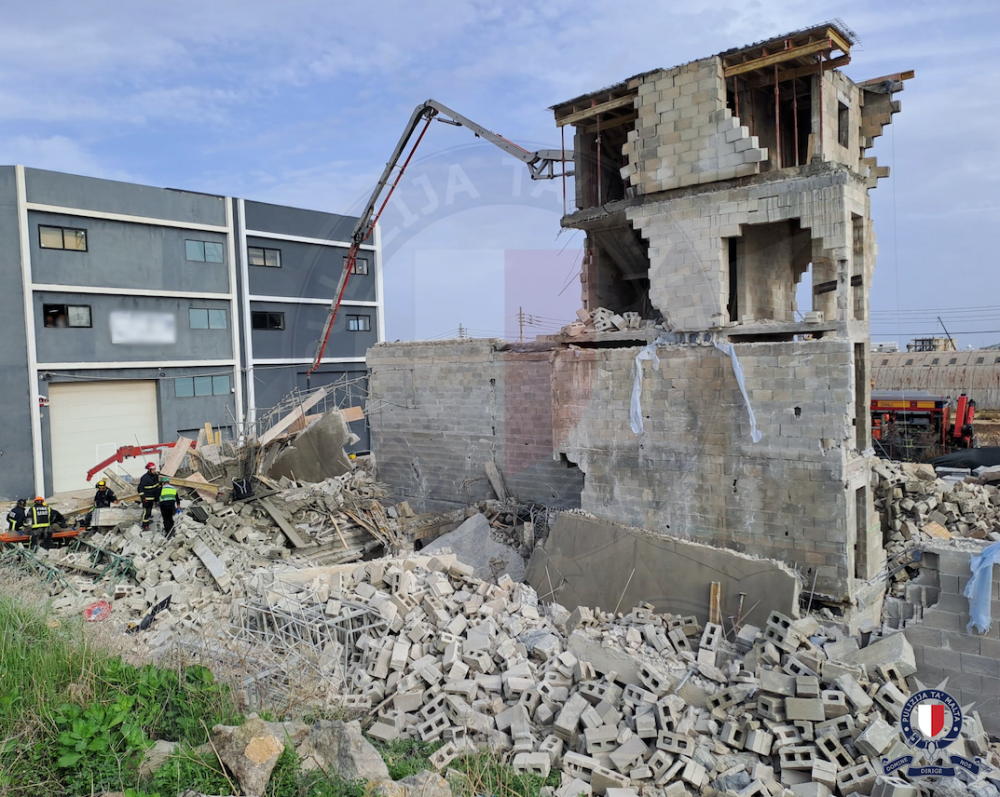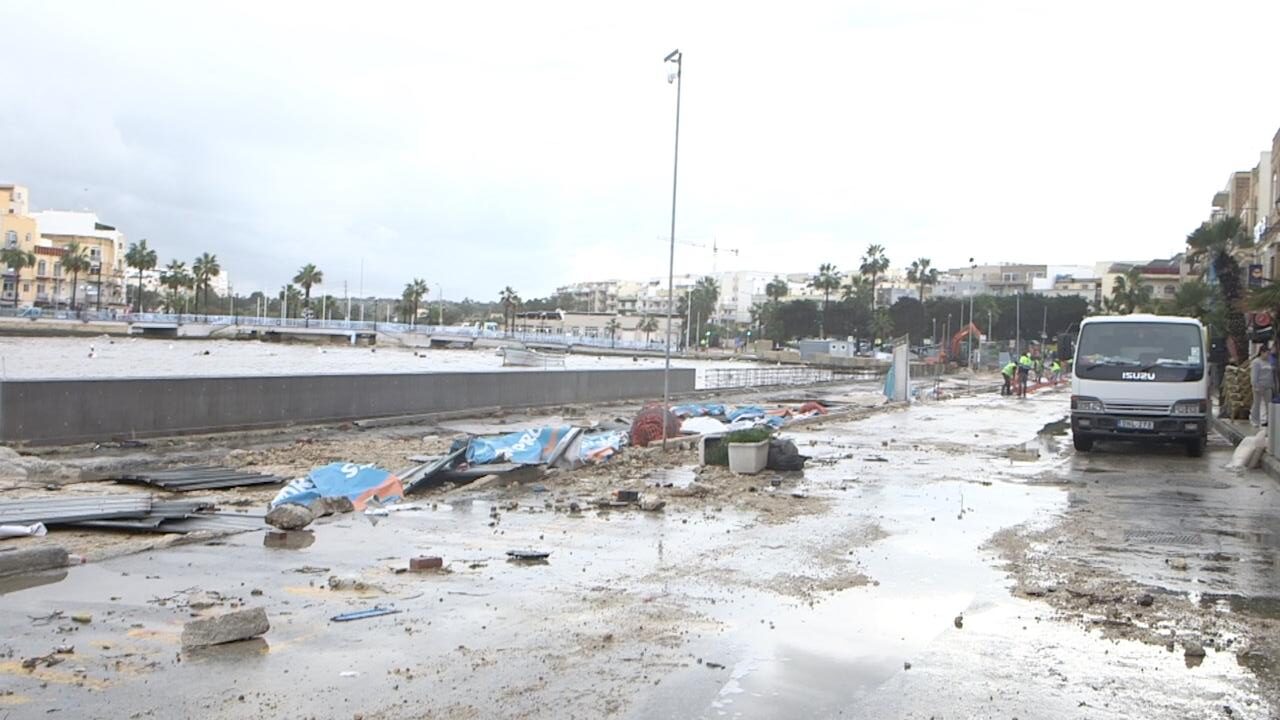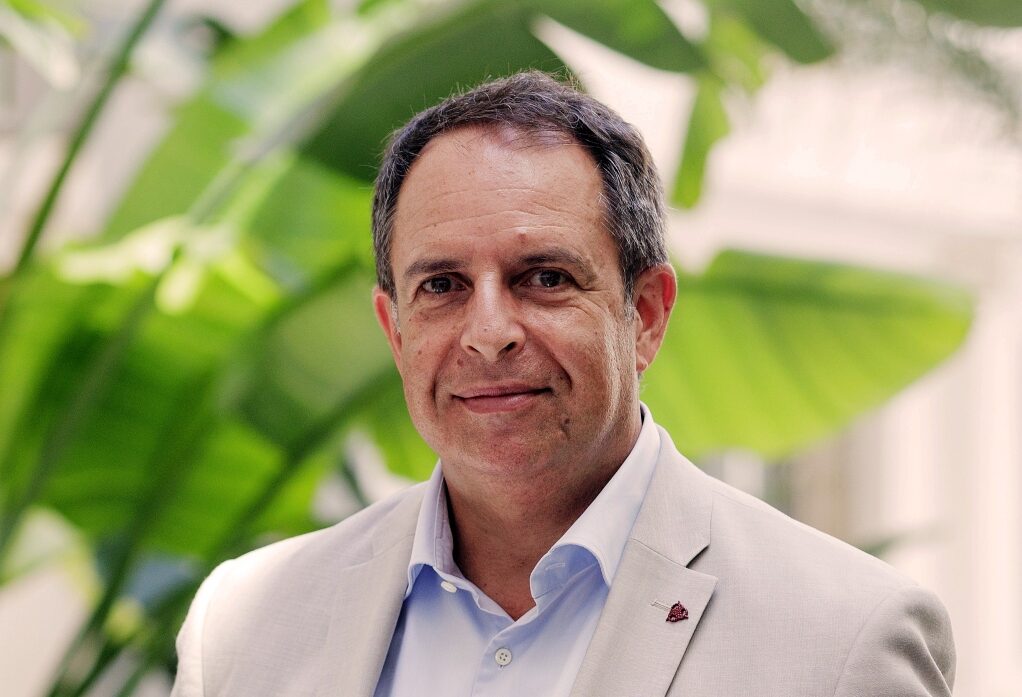A public inquiry into the collapse of a building on government land, resulting in the tragic death of construction worker Jean Paul Sofia, 20, was made public, revealing that the site in question was essentially uncontrolled and unregulated by any of Malta’s regulatory authorities, and pointed at severe shortcomings by Malta Enterprise and INDIS, formerly known as Malta Industrial Parks.
The report concluded that Malta Enterprise and INDIS should not have permitted the allocation of land in Corradino to the developers responsible for the faulty construction.
Describing the developers’ proposal as “objectively lacking in every respect,” the board of inquiry said:
“Anyone who was directly or indirectly involved on the part of Malta Enterprise to issue the letter of intent [to reallocate the land] should turn around and consider their position from today onwards. Whoever made a mistake, whoever he was, should take full responsibility. Otherwise the word accountability will just be an expression with no effective value at all.
“Anyone who in Malta Industrial Parks (today INDIS) does not understand what his or her role was as a director and/or administrator of public land – should turn around and consider their position from today onwards.”
The Board also noted that after an extensive change in the project’s business plan, on 14th May 2019, the letter of intent was issued “in a very short period”.
“Considering the extensive changes made by the applicants, this is considered a very strange fact,” the Board noted.
According to the 484-page report published on Wednesday, the responsibility for the misallocation of the land lies with Malta Enterprise and INDIS, rather than the Lands Authority, as the Corradino site was not under its jurisdiction.
Prime Minister Robert Abela received a copy of the report on Wednesday morning, with his office promptly distributing digital copies to the media. The report will also be presented in parliament for discussion later in the day.
The inquiry, which commenced in August and concluded in November, heard testimony from 69 witnesses and reviewed an extensive array of documents totalling 1,800 pages. Led by former judge Joseph Zammit McKeon, the three-person board was tasked with investigating the allocation of public land for the Corradino project to developers Kurt Buhagiar and Matthew Schembri, and whether this allocation contributed to the fatal collapse in December 2022.
Additionally, the inquiry examined regulations and policies concerning planning, development, and construction, assessing whether any state entity had neglected its responsibilities.
The Board highlighted an inconsistency in legislation regarding freestanding structures, which was only rectified through new regulations introduced last week. This regulatory gap resulted in freestanding buildings being essentially unregulated, lacking oversight from any authoritative body.
The report emphasised the necessity for clear and defined rights, ensuring that all parties understand their obligations and the consequences of non-compliance. Particularly in high-risk sectors like construction, adherence to regulations prioritising competence, skill, and safety is paramount.
Regarding Malta Enterprise and INDIS, the inquiry’s findings were scathing, labelling Malta Enterprise as “irregular, disrespectful of the law, and incompetent” in its evaluation of the developers’ proposal for a timber factory. The report asserted that the proposal should have been rejected at the assessment stage but instead was approved by Malta Enterprise’s investment committee in a “superficial” manner and subsequently “rubber stamped” by INDIS.
While the inquiry identified numerous instances of inadequate assessment by both entities, it stopped short of alleging bribery or corruption in the approval process. According to the board, there was insufficient evidence to conclude that the approvals were granted with the intent of personal gain for any individuals within Malta Enterprise or INDIS.
The Board also expressed concerns about the Occupational Health and Safety Authority (OHSA), specifically that it hold no legal or technical responsibility on matters concerning public safety and the protection of third-parties during works.
“If OHSA inspectors aren’t able to identify when people on a construction site are in danger, then we honestly don’t know what the scope of these inspections is,” it said.
The Board was critical of both former OHSA CEO Mark Gauci, and his arguments to support the authority’s works, which it described as reactive, and his boss, OHSA Chairman David Xuereb. Mr Gauci occupied his seat for some two decades, with the Board questioning whether such leadership positions should have a fixed term.
In a press conference, Prime Minister Robert Abela called on all those singled out in the report to shoulder responsibility.
‘People bring their best when they feel supported and valued’ – CLA Malta’s Dorianne Campbell
Dorianne Campbell on going the extra mile to create an environment that treats employees as the organisation’s most valued assets
Planning Authority proposes fast-track rebuilds, but draws a hard line on abuse
The PA is clear about the fact that this is about restoring what was lawfully there, nothing more
Wolfgang Tweraser’s relentless drive for efficiency, sustainability and excellence
He brings 40 years of international business experience into his most recent endeavour – TW Consulting & Trade Ltd






